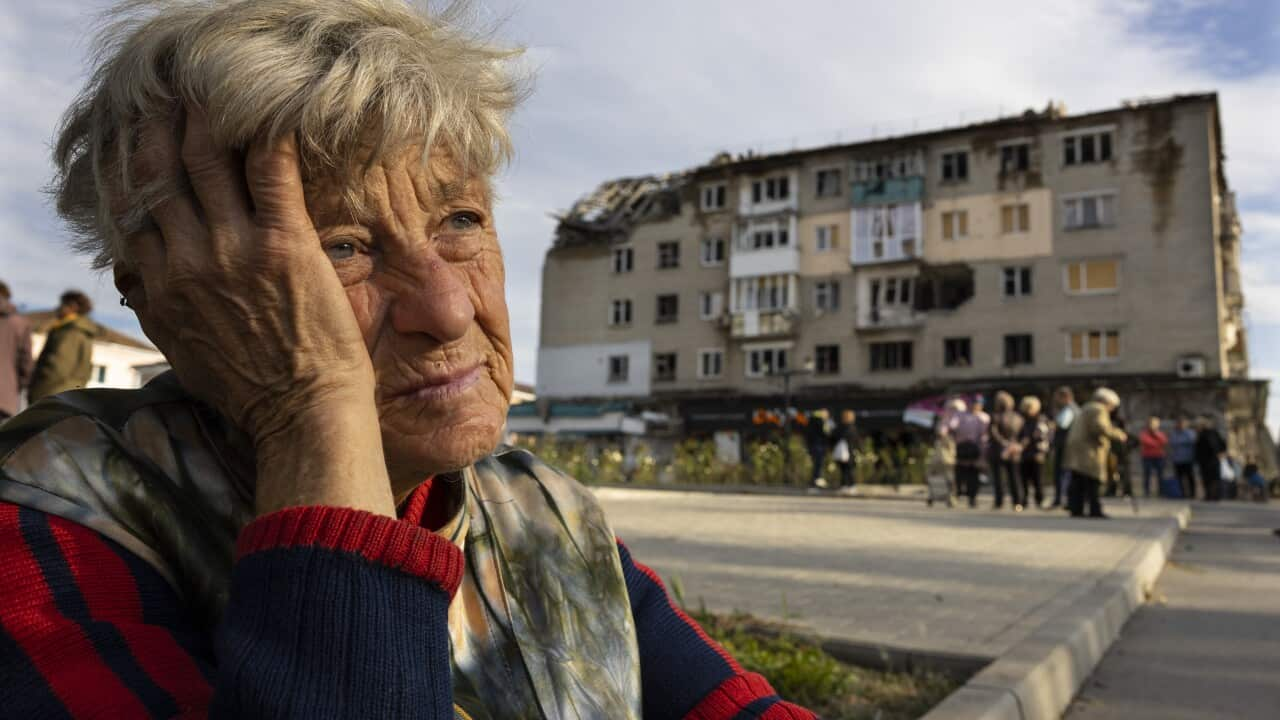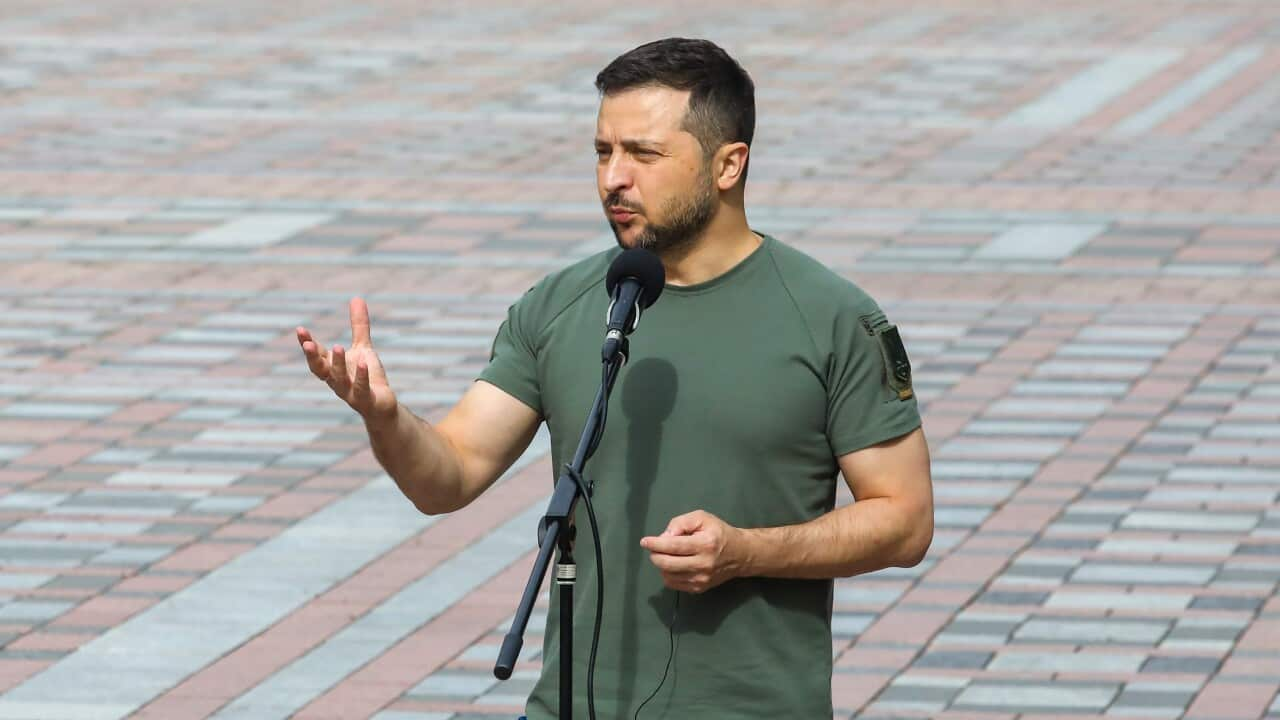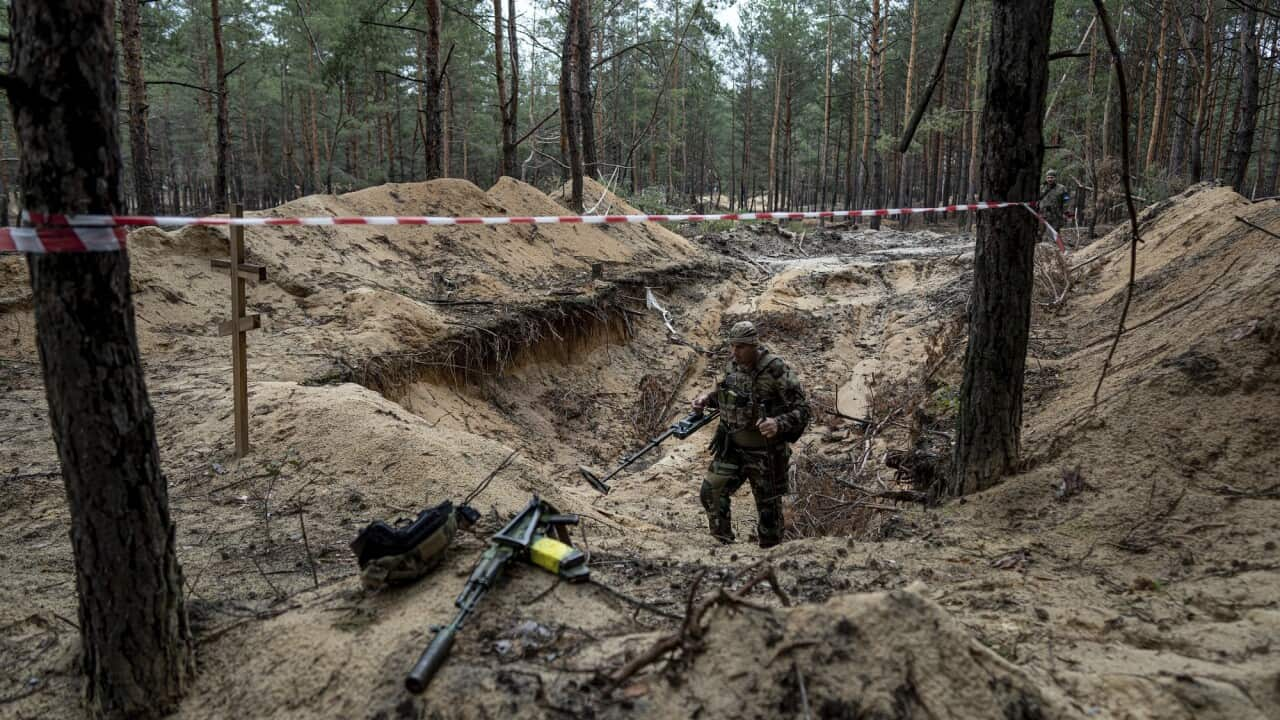Key Points
- Ukraine and its allies have condemned plans for occupied areas of Ukraine to vote on joining Russia.
- Russian-installed leaders in occupied areas of four Ukrainian regions set out plans for referendums on joining Russia.
Russian-installed leaders in occupied areas of four Ukrainian regions on Tuesday set out plans for referendums on joining Russia, a challenge to the West that could sharply escalate the war and sparked condemnation from Ukraine and its allies.
"The Russians can do whatever they want. It will not change anything," Ukraine's Foreign Minister Dmytro Kuleba said in response to reporters' questions at the United Nations.
In a tweet, he added: "Ukraine has every right to liberate its territories and will keep liberating them whatever Russia has to say."
US National Security Adviser Jake Sullivan said Washington rejected any such referendums "unequivocally," and the European Union and Canada condemned the plan.
EU foreign policy chief Josep Borrell said the bloc and its member states would not recognise the outcome of the referendums and would consider further measures against Russia if the votes went ahead.
French President Emmanuel Macron and Lithuanian President Gitanas Nauseda both used the word "parody" to describe the planned votes.
In the apparently coordinated move, pro-Russian figures announced referendums for 23 - 27 September in Luhansk, Donetsk, Kherson and Zaporizhzhia provinces, representing around 15 per cent of Ukrainian territory, or an area about the size of Hungary.
Russia already considers Luhansk and Donetsk, which together make up the Donbas region Moscow partially occupied in 2014, to be independent states. Ukraine and the West consider all parts of Ukraine held by Russian forces to be illegally occupied.

Ukrainians continue to leave the city after it was regained from Russian forces, in Kupiansk, Kharkiv, Ukraine on 20 September, 2022. Source: Getty / (Photo by Metin Aktas/Anadolu Agency via Getty Images)
Moscow to order mobilisation?
Some pro-Kremlin figures framed the referendums as an ultimatum to the West to accept Russian territorial gains or face an all-out war with a nuclear-armed foe.
"Encroachment onto Russian territory is a crime which allows you to use all the forces of self–defence," Dmitry Medvedev, a former Russian president and now hawkish deputy chairman of President Vladimir Putin's Security Council, said on social media.
Margarita Simonyan, editor-in-chief of the pro-Kremlin RT TV station, wrote: "Today a referendum, tomorrow recognition as part of the Russian Federation, the day after tomorrow strikes on Russian territory become a full-fledged war between Ukraine and NATO and Russia, untying Russia's hands in every respect."
The United States and NATO allies that have been backing Ukraine with weapons and other support said such plebiscites would be meaningless.
If the referendum plan "wasn't so tragic it would be funny," Mr Macron told reporters in New York, where leaders were arriving for a United Nations General Assembly meeting likely to be dominated by the war in Ukraine.
A spokesperson for Lithuania's Nauseda quoted him as saying: "These regions are and will be Ukraine, and Russia's sham referendums are illegal. Lithuania will never recognise them."
Reframing fighting in occupied territory as an attack on Russia could give Moscow a justification to mobilise its 2 million-strong military reserves. Moscow has so far resisted such a move despite mounting losses in what it calls a limited "special military operation" rather than a war.
Mr Sullivan said Washington was aware of reports that Mr Putin might be considering ordering a mobilisation, which Mr Sullivan said would do nothing to undermine Ukraine's ability to push back Russian aggression.
'Loud and clear'
Russia has declared capturing all of Luhansk and Donetsk provinces to be its main aim since its invasion forces were defeated in March on the outskirts of Kyiv.
It now holds about 60 per cent of Donetsk and had captured nearly all of Luhansk by July after slow advances during months of intense fighting. Those gains are now under threat after Russian forces were driven from neighbouring Kharkiv province this month, losing control of their main supply lines for much of the Donetsk and Luhansk front lines.
The referendums were announced a day after Ukraine said its troops had recaptured a foothold in Luhansk, the village of Bilohorivka, and were preparing to advance across the province.
The general staff of Ukraine's armed forces said on Tuesday evening that its operations in Donetsk near the towns of Bakhmut and Avdiivka caused Russia to suffer "significant losses."
But Russia shelled those towns and dozens more in northeastern and southern Ukraine, the general staff said. Reuters could not independently verify those reports.
In the south, Russia controls most of Zaporizhzhia but not its regional capital. In Kherson, where the regional capital is the only major city Russia has so far captured intact since the invasion, Ukraine has launched a major counter-offensive.
Unverified footage on social media showed Ukrainian forces in Bilohorivka, which lies just 10 km west of the city of Lysychansk that fell to the Russians after weeks of some of the war's most intense fighting in July.
"There will be fighting for every centimetre," the Ukrainian governor of Luhansk, Serhiy Gaidai, wrote on Telegram. "The enemy is preparing their defence. So we will not simply march in."
Pro-Russian officials have said the referendums could be held electronically. Russia staged a referendum in Crimea eight years ago before declaring the former Ukrainian territory annexed.
In a move designed to shore up Russia's military in Ukraine, Russia's parliament on Tuesday approved a bill to toughen punishments for a host of crimes such as desertion, damage to military property and insubordination, if they were committed during military mobilisation or combat situations.












